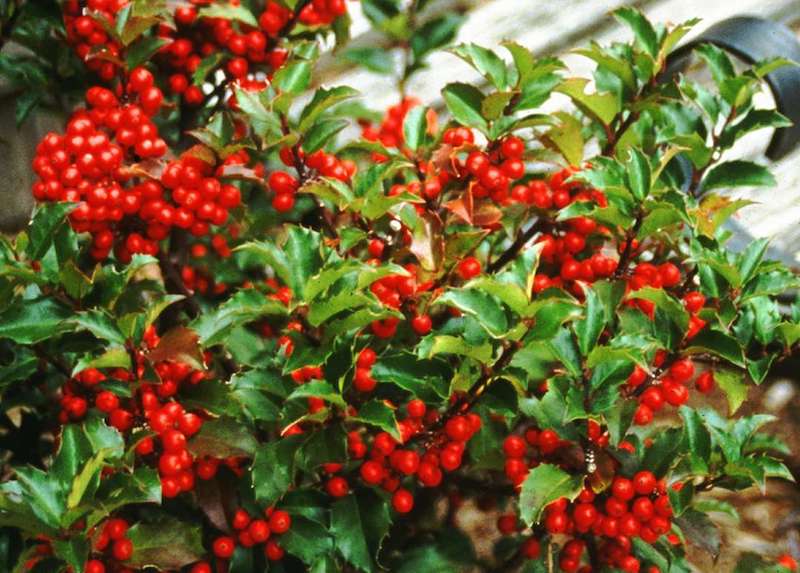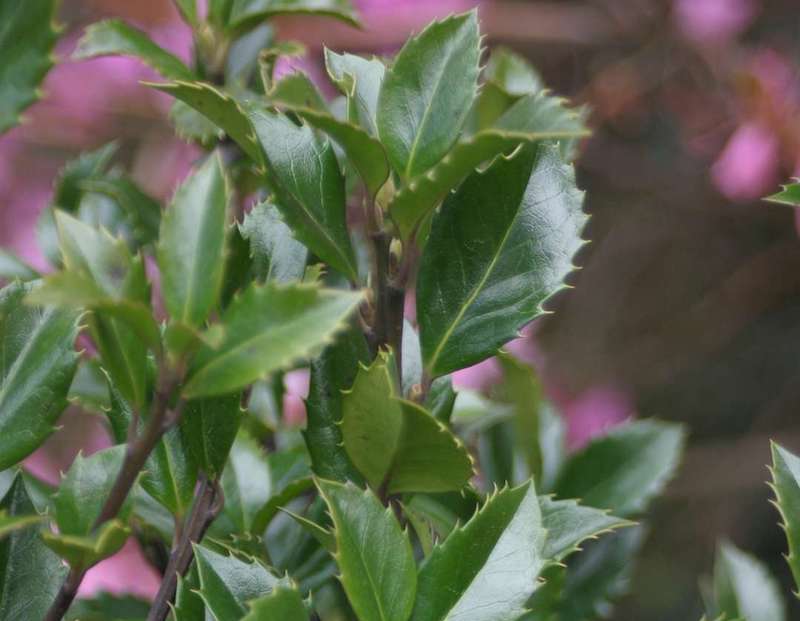The candy red color of the berries on a female blue holly plant can be tempting for small children or animals. The berries, however, are very toxic if eaten in large enough quantities. If ingested, see a doctor or get in touch with poison control. In severe instances, you may need to go to the emergency room. People and pets who ingest the berries of a blue holly plant could experience dehydration, drowsiness, vomiting and diarrhea.

Are Blue Holly Poisonous to Children?
Children who encounter the berries of a blue holly may be attracted at first, but they will likely spit the fruit out quickly. The blue holly berry tastes awful to humans. If blue holly sprigs are typically brought into your home for the holidays, consider removing the berries first. This will reduce the chances of them falling off and becoming an easy target for curious kids.
Are Blue Holly Poisonous to Dogs?
Dogs are usually a little less susceptible to the toxic effects of the berries. The spiny leaves and small berries taste bad to these animals. Still, keep watch for symptoms like diarrhea, lethargy, and vomiting as these are signs that your dog has consumed a large quantity. Seek veterinary help if you think your dog has been poisoned by blue holly.

Are Blue Holly Poisonous to Cats?
Typically cats stay away from blue holly due to the spiky foliage. They take little interest in the berries of this shrub. Both the berries and leaves of blue holly are of fairly low toxicity to cats. However, if you notice signs of vomiting and diarrhea after exposure, seek veterinary care.
Are Blue Holly Poisonous to Other Animals?
And those attractive songbirds that hangout near your blue holly shrubs? They’ll be fine. Oftentimes blue holly berries provide excellent food and protection for migratory birds. Usually these fruits are not the first choice for birds though. Instead, the birds may use these shrubs for cover and protection.

Symptoms Of Blue Holly Poisoning
Always check with your doctor or veterinarian for guidance if you suspect blue holly poisoning.
Here are some common symptoms to look out for:
- Vomiting
- Diarrhea
- Depression
- Lethargy
- Dehydration
Preventing Blue Holly Poisoning
Physical barriers like fences may be helpful in preventing blue holly poisoning. During the holidays, if you plan to display holly boughs, consider removing the berries. Animal chew deterrent products may be available. Other options include growing the plants out of reach, or choosing other shrubs like blueberry which have berries that are not poisonous.
Pet Poison Helpline
If something were to happen to your furry friend, and you suspect that they are suffering from blue holly poisoning, there is a poison control hotline to call for 24/7 vet advice. It is called the Pet Poison Hotline, and their phone number is (855) 764-7661.
Sources: "Holly." American Society for the Prevention of Cruelty to Animals. aspca.org
